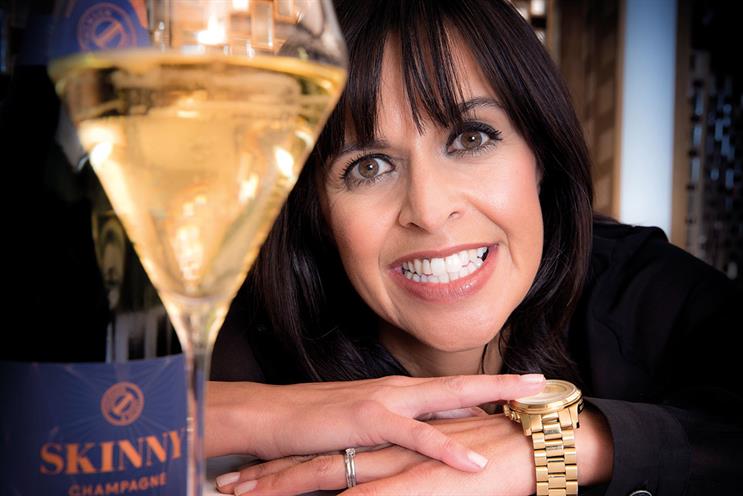
The traditional excess of the festive season is getting a makeover. When this period brings excess in not just food and drink but painstakingly staged selfies, the alcohol industry is having to reappraise its marketing strategy to better connect with a generation for whom control of their image is non-negotiable.
According to global research from Heineken, 59% of millennials cite avoiding loss of control as the primary factor for limiting alcohol consumption on a night out. This need for control of both image and alcohol intake is driving the phenomenal growth of Skinny Prosecco, the top-selling alcohol brand in Selfridges this year, which has quadrupled sales month on month.
Sam Shaw, head of insights at Canvas8, says this generation are living in an environment where they can have a photo taken of them any time and anywhere, which is driving a fierce desire for control. "Control is not just about identity, it’s also about experiences," he says. "And because they’re drinking less, they are looking for a night out to remember."
This trend is being exploited by the Skinny brand, which is part of the Thomson & Scott portfolio of drinks. It was founded by Amanda Thomson, a former journalist who spotted a gap in the market for premium sugar-free sparkling wine.
According to Thomson, the "next generation of drinkers" have been ignored by the wine industry. She says: "There is a generation of consumers who want luxury without compromise and I am delighted to see that people can drink better but less."
Thomson has her sights set firmly on those who want to democratise fine wine. "I feel that young drinkers had departed to the cocktail world because it is more fun and democratic," she explains. This is a trend she is seeking to reverse with her range of transparent, sugar-free and premium products.
The polite disruptor
The wine trade is still wedded to the status quo. Thomson describes herself as a "polite disruptor" in a market that remains male-dominated and resistant to change.
Recalling a meeting with an industry expert who baulked at her suggestion at the Skinny brand name while ordering a skinny latte, she says the term equates to a "global shortcut for healthier options".
Skinny is in the midst of global expansion – it is launching in the US, Canada and South Africa next year. The product range – which includes Prosecco (retailing for £16.99) and Grand Cru Champagne (£49) – is also set to expand. Skinny is entering the mainstream Champagne market with a sulphite-free blend, which will retail at a price point to match the likes of Veuve Clicquot.

When some consumers declare they can’t drink red wine as it gives them a headache, Thomson explains, it is in fact the presence of sulphites in that particular wine that they are reacting to. "We are completely transparent about what is in our bottle and that has really connected with young consumers," she adds.
Playing the long game
"There is all this incredible wine out there but it will never get cut-through in this market," Thomson says. Taking her inspiration from the fashion world rather than the wine industry, she is focused on the power of storytelling and experiences.
But with the Skinny range in the ascendancy, it would be easy to underplay the guts, determination, sleepless nights and credit-card bills that are familiar to any entrepreneur.
Thomson spent three years in France travelling to numerous vineyards and learning her craft. She believes that disrupting the sector and appreciating the craft of winemaking are not mutually exclusive.
But there were countless meetings and knock-backs. "I treated it like speed-dating," Thomson recalls. "I met venture capitalists, crowdfunders, industry experts. I met a lot of sharks."
The old adage that women find it tougher to secure funding for businesses, despite being statistically more likely to succeed, held true for Thomson. "I had emails saying: ‘Skinny Champagne and a hot CEO: what’s not to love?’" she says. "There are times when I cried with frustration." (In fact, her first angel investor ended up being a woman.)
Yet Thomson never wavered from her belief. And it’s paying off – since she has come to market with a global supply chain in mind, her barriers to growth are low. With an eye on the extreme convenience that is key to connecting with millennials, her products are already available on Amazon.
Thomson attributes some of her success to simply maintaining belief in her brand. She advises would-be entrepreneurs to "stay on the train", have a strong will and never lose focus.
It seems, for young people and entrepreneurs alike, game face is everything.


